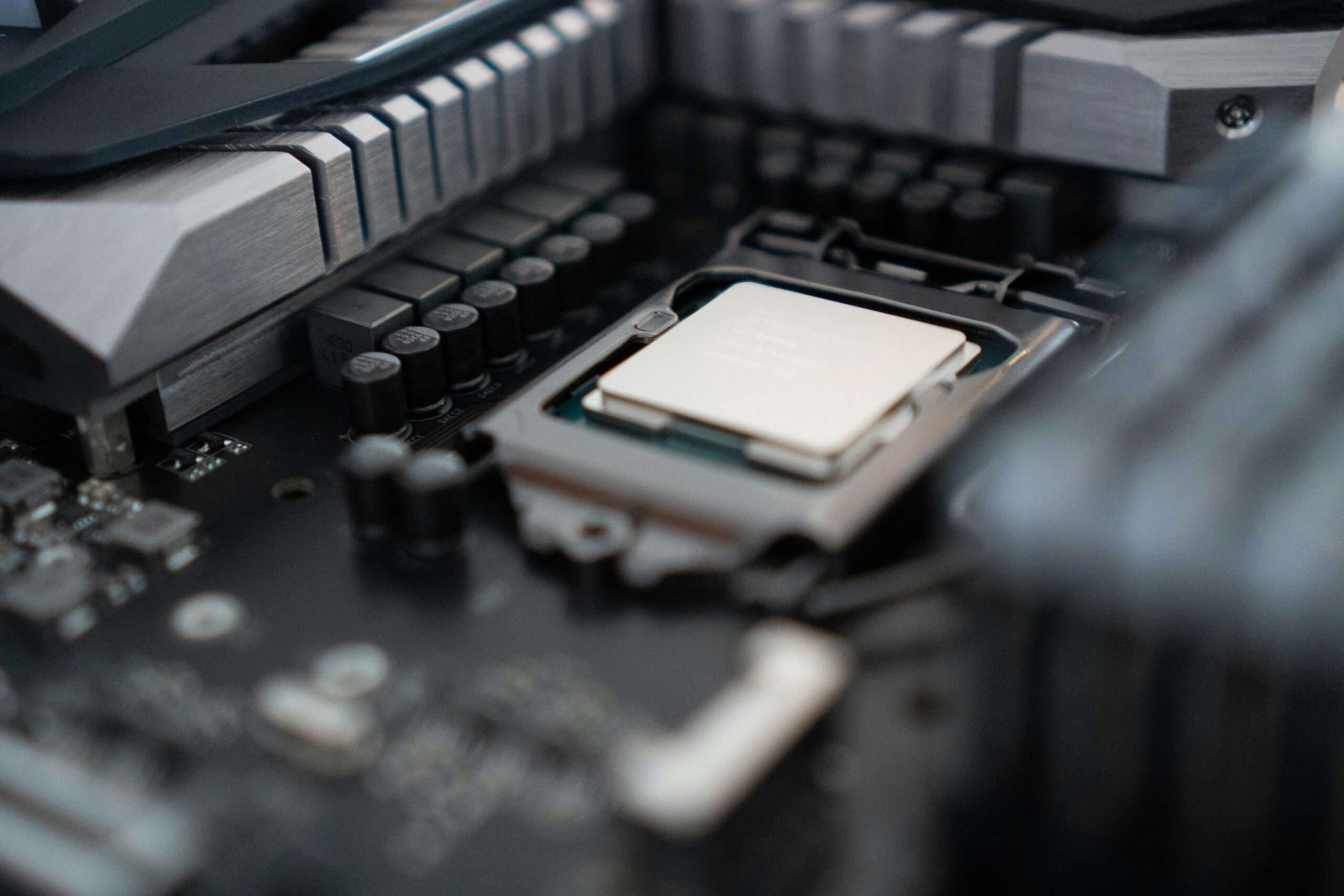Last updated on February 2nd, 2025 at 10:30 am
If you are building a new PC, it can be difficult to decide which processor is a better option. For many decades, Intel and AMD have competed to give PC users the best processors, and each company has its devoted fan base.
In this guide, you’ll learn about the difference between Intel and AMD processors, and which one is better for your needs.
What Is A Processor?
A processor, also known as a CPU (Central Processing Unit), is a mini, powerful chip that functions as the brain of the computer. This component is responsible for performing calculations and executing instructions that are essential for running programs and the PC’s operating system.
How CPUs Work
CPUs work by operating in a cycle of fetching, decoding, processing, and outputting instructions. The CU (Control Unit) manages the CPU’s operations, while the ALU (Arithmetic Logic Unit) executes arithmetic and logical operations. The quicker a CPU processes instructions, the faster and more efficient the computer’s performance will be.
Essential Factors Of A CPU
Here are some essential factors that you should know about before buying a new CPU:
- Core Count – This refers to the number of processing units within the CPU. The more cores a CPU has, the more efficient it will be when multitasking.
- Clock Speed – The clock speed of your CPU is a measurement of the number of cycles the CPU can execute per second. The higher your CPU’s clock speed is, the better your computer will perform.
- Cache – A CPU’s cache is dedicated memory that’s used to temporarily store data needed to execute instructions. The more cache your CPU has, the quicker your computer’s performance will be.
- Threads – These are software components that divide a CPU core into multiple virtual cores. The more threads your CPU has, the smoother your computer’s performance will be when running demanding applications.
What Is Intel?
Founded in 1968 by Robert Noyce and Gordon Moore, Intel is the world’s biggest manufacturer of semiconductors and CPUs. In 1971, Intel created the Intel 4004, the world’s first commercially available microprocessor.
In 1993, Intel released the Pentium, the first processor to be named after a word instead of a number. In 2006, Intel launched the Core naming scheme to replace Pentium.
Later on, the Intel Core i3, i5, i7, and i9 CPUs were introduced. In October 2024, Intel updated its CPU naming scheme from Core to Core Ultra. To this day, Intel remains a leader in the tech industry, with its processors powering many popular devices around the world.
What Is AMD?
Founded in 1969, AMD has played a major part in driving innovations in the tech industry. AMD frequently collaborated with Intel to manufacture CPUs during the 1980s and 1990s.
In 1996, AMD went their separate ways and eventually became the fierce competitor to Intel that we know today. In 2006, AMD acquired ATI Technologies. This allowed AMD to enter the graphics card market and develop APUs, which are CPUs with advanced integrated graphics.
In 2017, AMD introduced the Ryzen series, their current CPU lineup. Today, AMD has grown into a global tech giant that develops CPUs, GPUs, and APUs for computers, gaming consoles, and many other well-known devices.
What’s The Difference Between Intel & AMD CPUs?
Even though it might not be noticeable, there are many significant differences between Intel and AMD CPUs.
Gaming
When it comes to gaming, it is crucial to have a CPU that can keep up with your graphics card to avoid bottlenecks (Read the article 10 Common Reasons Your PC Is Lagging During Gaming to learn more).
If you are a competitive gamer, Intel offers better performance than AMD processors, due to their CPUs having higher single-thread clock speeds.
Recently, AMD’s latest CPUs have been closing the gap between Intel’s single-thread performance, so the choice may have to come down to which CPU brand offers the better deal.
Content Creation & Productivity
If you are a content creator or someone who multitasks a lot, you will need a CPU that can keep up with your heavy workloads.
This is where AMD shines in. AMD CPUs provide superior performance by offering faster cores and threads, which is needed for many professional applications.
Nevertheless, Intel CPUs offer great value for productivity, and certain programs prefer the use of Intel CPUs due to their single-thread performance.
Value
If you are on a budget, it is essential to buy a CPU that provides great price-to-performance and energy efficiency.
AMD usually offers good value, due to providing more cores and cache at an affordable price. Lately, Intel has been very competitive with their, offering faster single-threaded and multi-threaded performance compared to previous generations.
Generally speaking, the value that Intel and AMD CPUs provide varies on how much you’re willing to spend, and which brand offers the better price currently.
Which Company Makes The Best Processors?
Whether Intel or AMD makes the best processors depends on a variety of factors. Both Intel and AMD CPUs have strengths and weaknesses, and you should choose a CPU that offers the best performance for your budget.
Regardless if you use your PC for gaming, productivity, content creation, or just everyday tasks, both Intel and AMD make processors that provide excellent performance.
Best Enthusiast CPU – AMD Ryzen 9 9950X
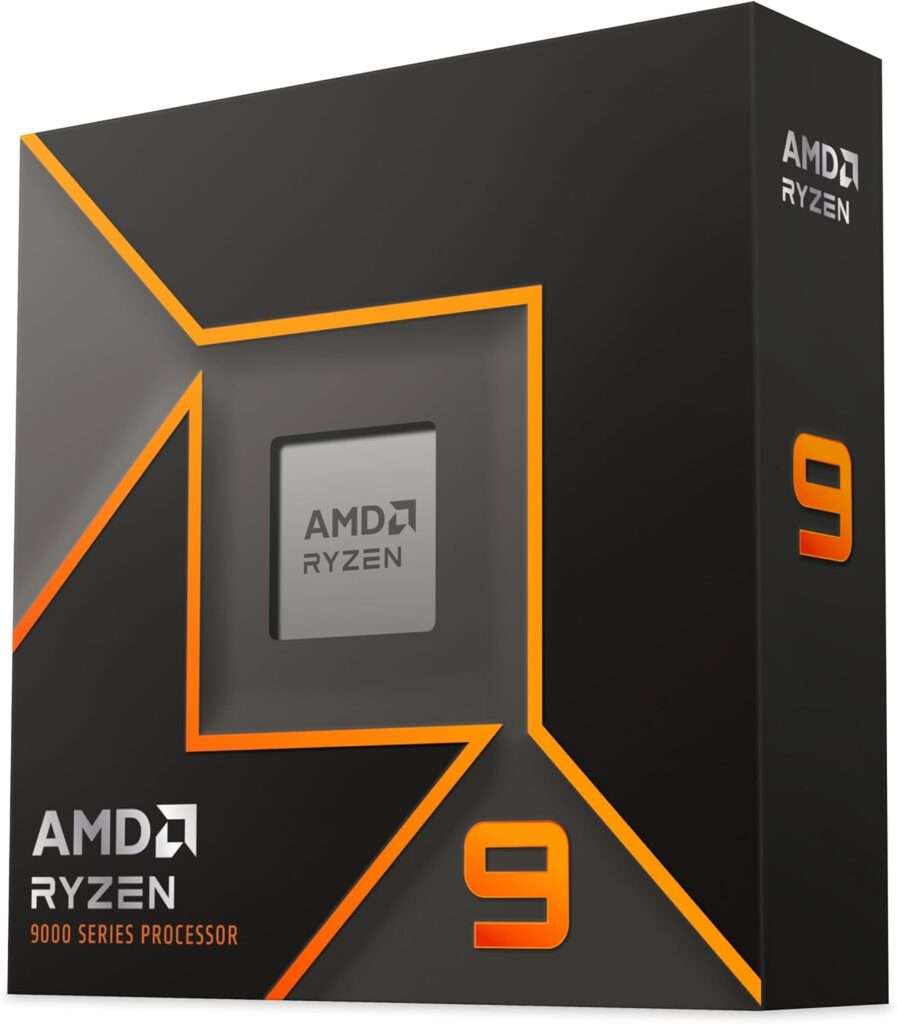
If you need a CPU that can handle any demanding program with ease, the AMD Ryzen 9 9950X is an exceptional choice. This 16-core, 32-thread processor offers superb single-threaded and multi-threaded performance.
The 9950X comes with native AVX-512 support, which means you’ll notice a significant boost in productivity. If you need an extremely powerful CPU that can handle intensive creative workloads without breaking a sweat, the AMD Ryzen 9 9950X is one of the fastest enthusiast CPUs in the market.
Best High-End CPU – AMD Ryzen 7 9700X
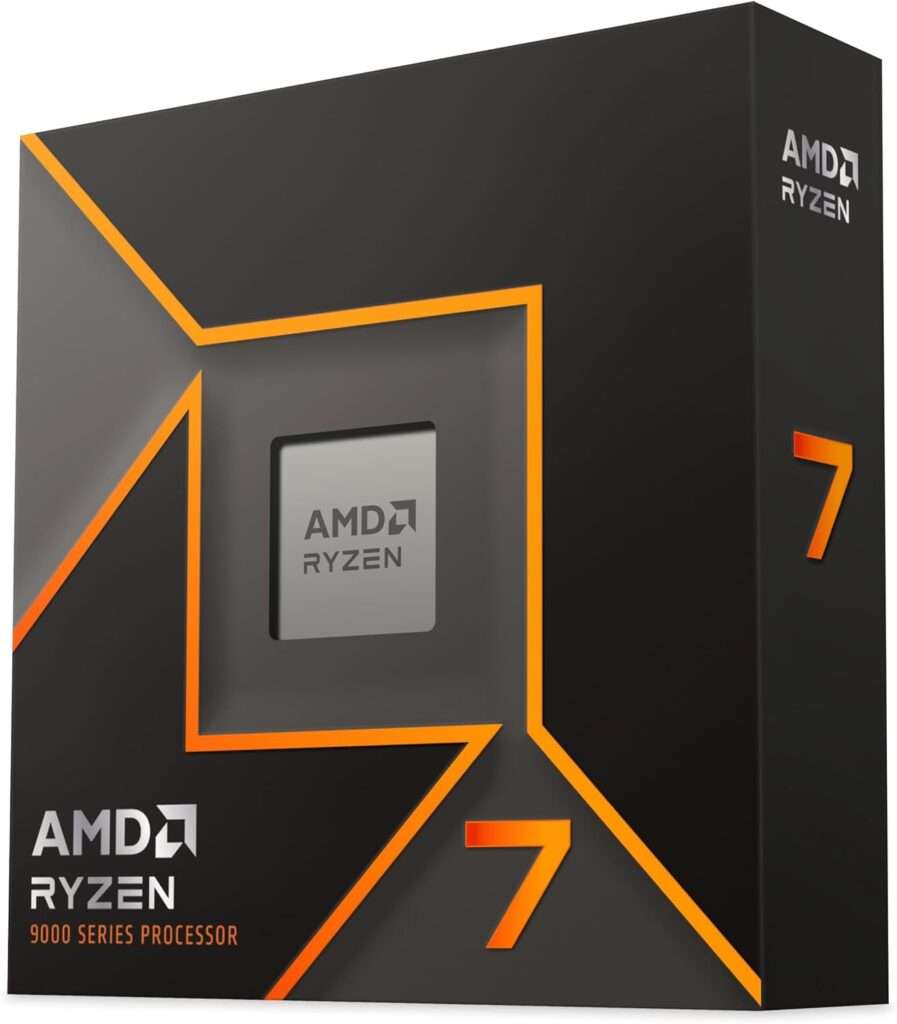
Are you building a new PC, and need a CPU that’s good for gaming and productivity? The AMD Ryzen 7 9700X is for you. With 8 Zen 5 eight cores with 16 threads, this CPU has enough power to handle gaming and streaming with ease.
With up to 5.5GHz max boost, the 9700X has enough speed to run your favorite games and productivity programs. If you need a CPU that has amazing performance and power efficiency, the AMD Ryzen 7 9700X is one of the best high-end CPUs you can buy right now.
Best Mid-Range CPU – AMD Ryzen 5 9600X
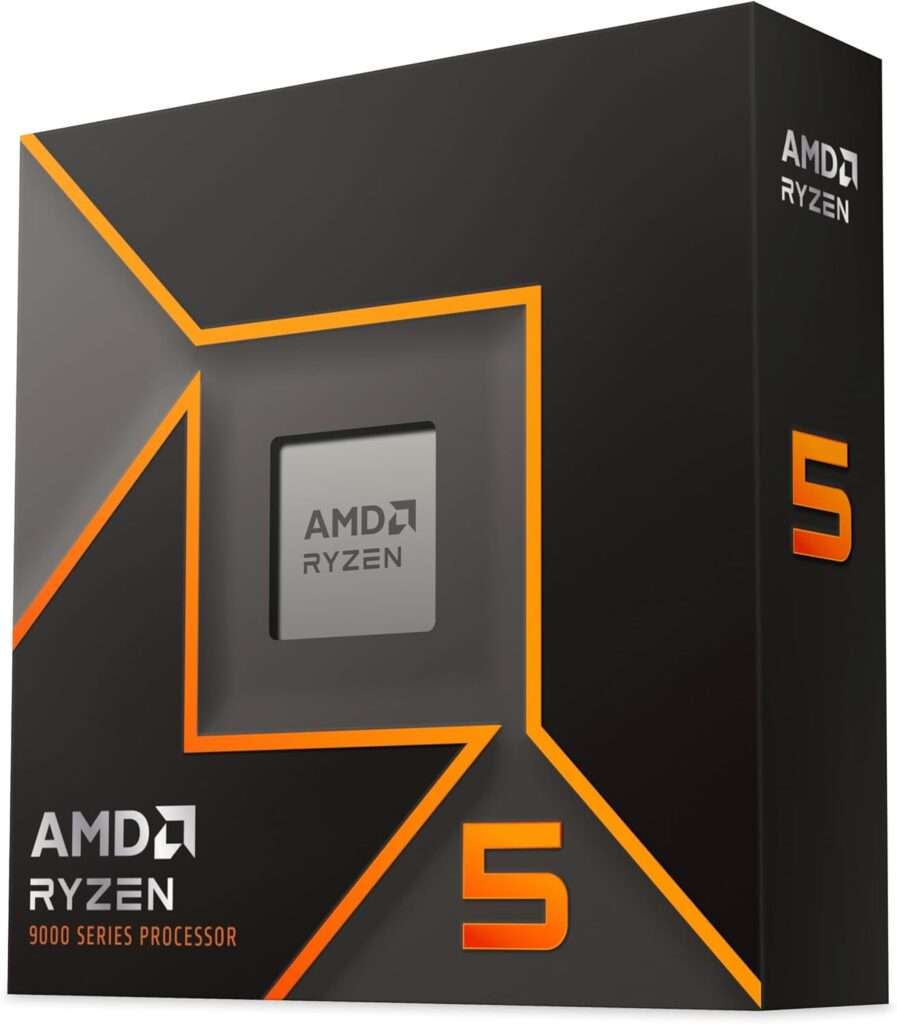
If you need a CPU with impressive performance at a decent price, the AMD Ryzen 5 9600X is an exceptional option. Based on AMD’s Zen 5 microarchitecture, this six-core CPU offers excellent power efficiency compared to its predecessors.
The 9600X also provides outstanding single-threaded performance, which means it will perform extremely well in gaming. If you need a CPU that offers good performance and low power consumption, the AMD Ryzen 5 9600X is one of the best mid-range CPUs around.
Best Budget CPU – Intel Core i5-12400F
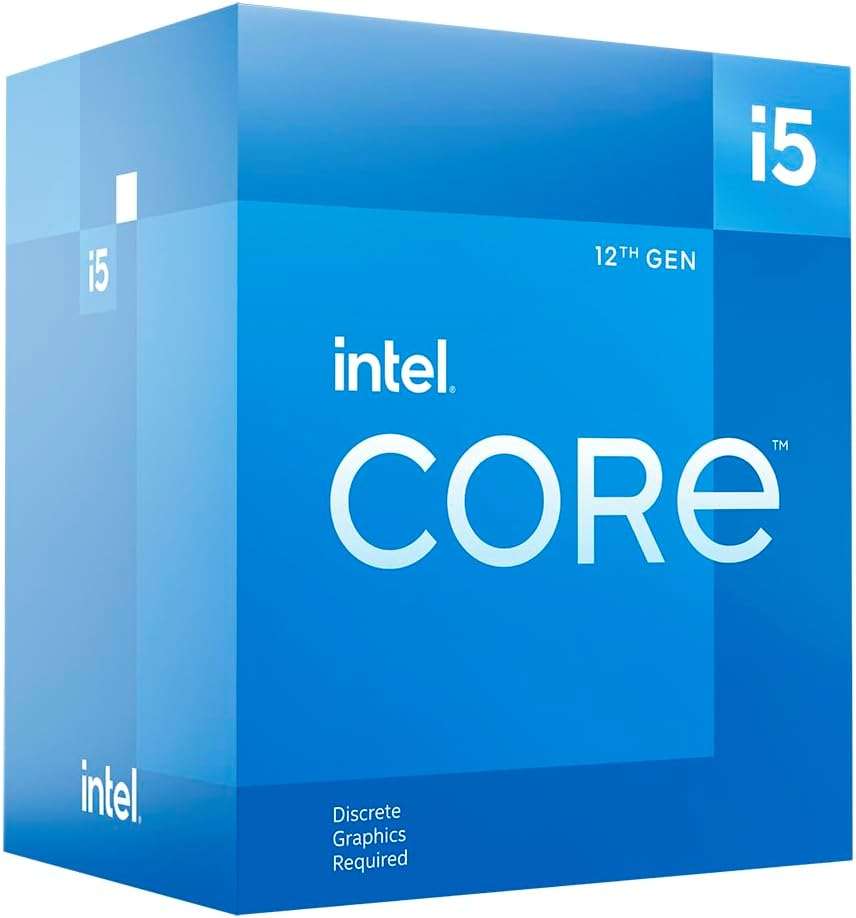
Do you have a tight budget, and need a CPU that has good performance for the money? Look no further than the Intel i5 12400F. With six Alder Lake cores, this CPU offers terrific gaming performance for the price. With turbo speed up to 4.4 GHz, the 12400F is fast enough to handle all of your essential programs.
This CPU also has low power usage, which makes it suitable for PC users who don’t have high-end cooling devices. If you are building a PC and need an affordable CPU that’s great for gaming and other everyday tasks, the Intel Core i5-12400F offers amazing value.


